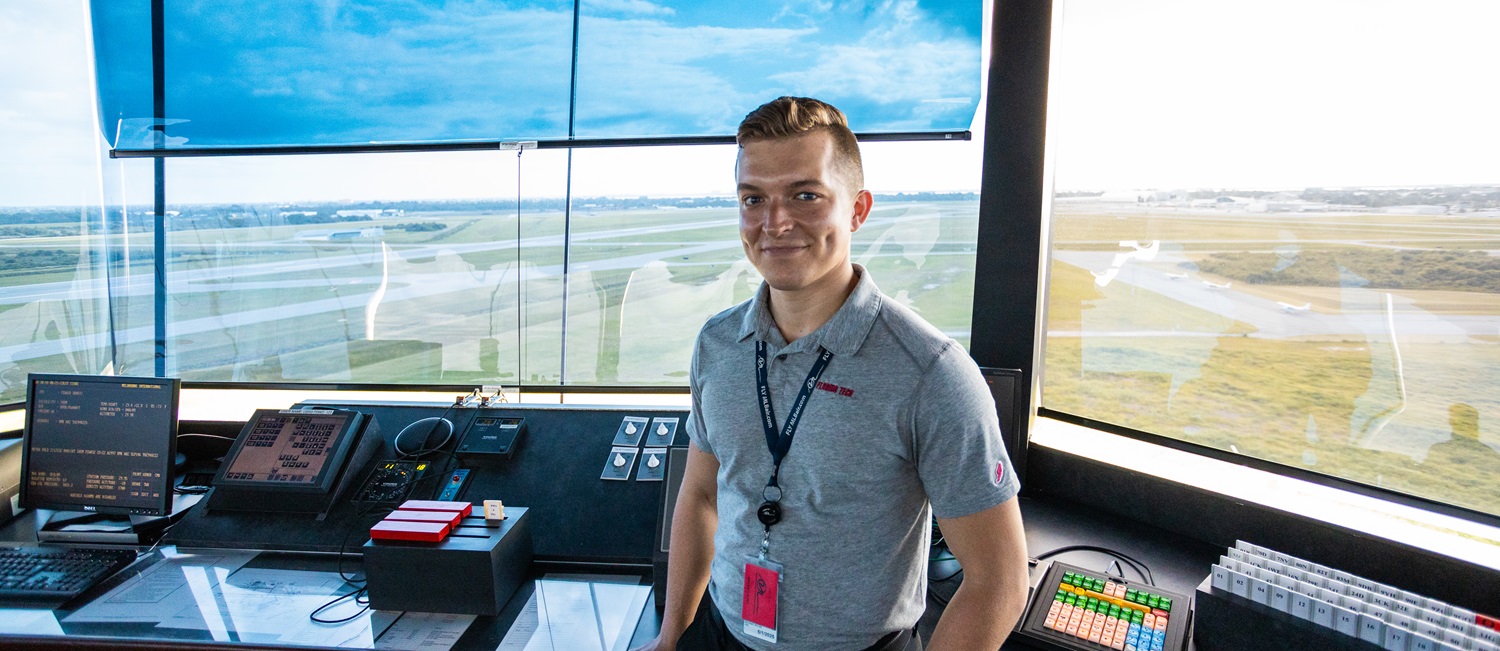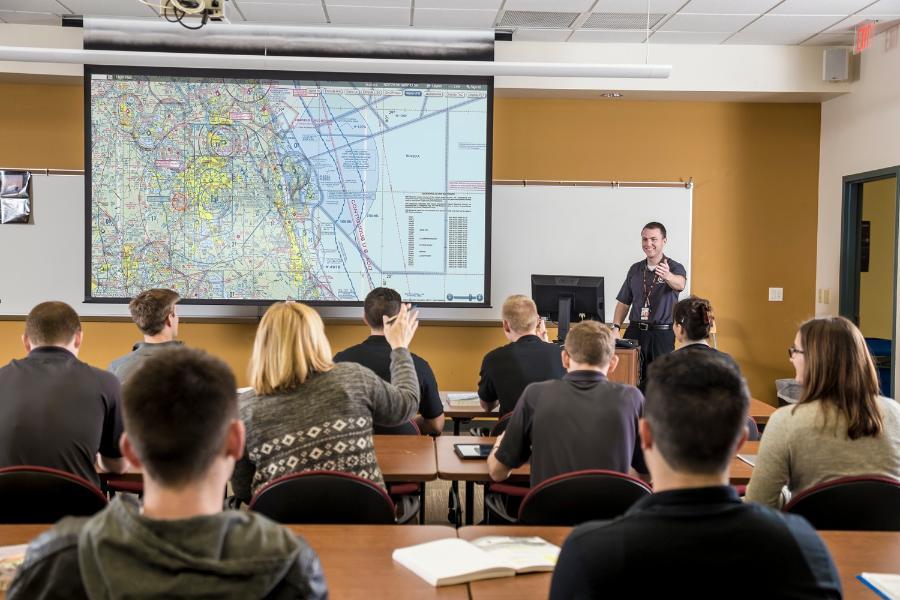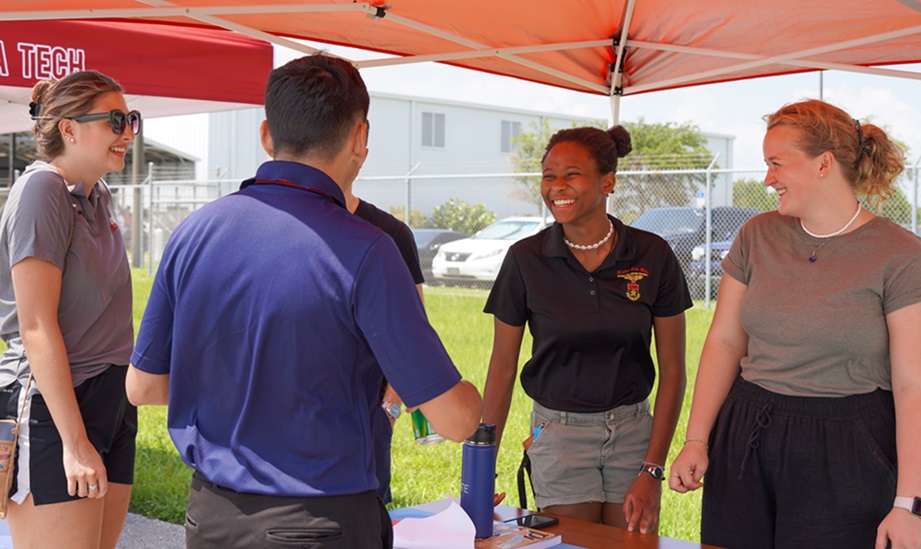Elevate Your Network
As an on-campus student at Florida Tech, you can create personal and professional connections by participating in student organizations. Here are a few of special interest to air traffic control students:
- Collegiate Aviation Business Executives (CABE) hosts speakers and facilitates activities, such as airport tours, seminars and networking opportunities.
- Women in Aviation Space Coast Florida Tech chapter, a group of female and male aviation enthusiasts, brings in aviation professionals to speak and organizes aviation-related events, such as field trips to airshows and even air traffic control facilities!
- Alpha Eta Rho (AHP), a professional collegiate aviation co-ed fraternity, brings together students with a common interest in aviation. Founded in 1929, it's the oldest aviation organization on college campuses today.
These organizations and other campus activities provide great opportunities to network with industry professionals and learn from the success of Florida Tech aviation alumni.

 Give to Florida Tech
Give to Florida Tech 


